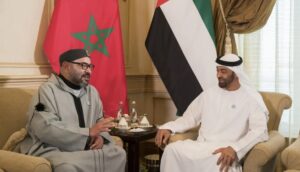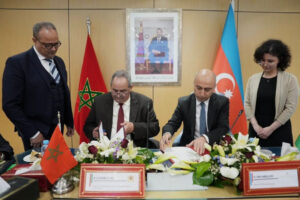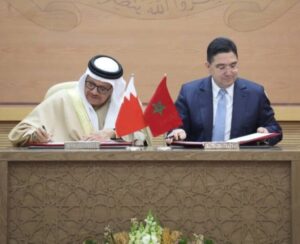Morocco Reaffirms Commitment to Dialogue with Spain on Maritime Borders

Rabat, The Gulf Observer: Morocco remains firmly committed to pursuing dialogue with Spain over maritime border delimitation, while adhering to international law and rejecting unilateral measures, Foreign Minister Nasser Bourita emphasized during a high-level seminar on “International Practices in Maritime Space Delimitation” held in Rabat.
Delivering Bourita’s address, his chief of staff Sami El Marrakchi said Morocco’s maritime doctrine is guided by three constants: the defense of territorial integrity, respect for international legality, and rejection of unilateralism. “Whenever we have faced attempts at imposition, we have responded firmly but always respecting the law of the sea,” Bourita noted, stressing the preference for peaceful dispute settlement.
On the sensitive issue of maritime borders with Spain, Bourita reaffirmed Morocco’s commitment to a “peaceful, direct, transparent and constructive” dialogue, underscoring that bilateral engagement reflects good neighborliness and mutual interests within the framework of the Rabat–Madrid strategic partnership. “When dialogue is chosen, the sea ceases to be a line of separation to become a bridge of union,” he said.
Beyond delimitation, Morocco’s maritime vision, spearheaded by King Mohammed VI, prioritizes harnessing ocean potential for development and regional integration. This includes expanding the blue economy, developing port infrastructure such as Tanger Med and the upcoming Dakhla Atlantic port, and rebuilding a competitive national fleet.
Bourita highlighted Morocco’s maritime diplomacy through initiatives such as the Rabat Process (2022), uniting 23 African Atlantic states on maritime security and sustainable development; the Royal Initiative to grant Sahel countries access to the Atlantic (2023); and the Nigeria–Morocco gas pipeline project, which will link 13 African nations. He underlined the royal conviction that “everything becomes possible in Africa when a strong vision allies with firm determination.”
At the June United Nations Ocean Conference in Nice, King Mohammed VI—represented by Princess Lalla Hasnaa—co-chaired the “Africa for the Ocean” summit, affirming Africa’s maritime role in global governance.
Bourita also urged reforms in global ocean governance to integrate technological advances, address environmental challenges such as biodiversity loss and ocean acidification, and adapt to new maritime uses. He called for the swift implementation of the Agreement on Biodiversity Beyond National Jurisdiction (BBNJ), describing it as a “strategic and ethical” priority.
Tracing Morocco’s maritime sovereignty, he recalled milestones including the creation of the Royal Navy (1960), proclamation of territorial waters (1973), declaration of the exclusive economic zone (1981), adoption of continental shelf laws (1992), and major legislative reforms in 2020 on territorial waters and the EEZ. He stressed that while the 1982 UN Convention on the Law of the Sea remains a reference, it must evolve to reflect today’s realities.
The seminar brought together leading international legal experts, including Mohamed Bennouna, President of the Institute of International Law, and Yuji Iwasawa, President of the International Court of Justice, offering a platform for global dialogue on maritime governance.


